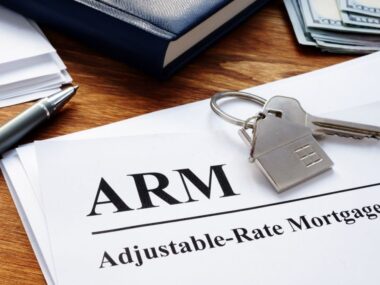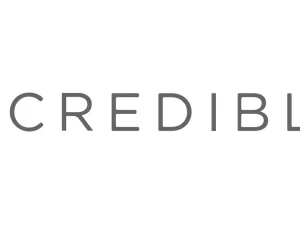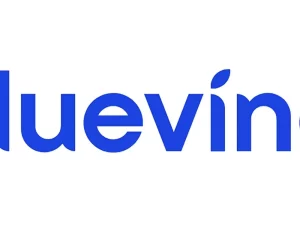Reverse mortgages provide a plethora of benefits for seniors, offering a valuable financial tool that can significantly enhance their quality of life during retirement. These unique financial products enable homeowners aged 62 and older to tap into the equity of their homes without the need to sell the property or make monthly mortgage payments. Let’s delve into the comprehensive range of benefits that reverse mortgages offer:
1. Access to Home Equity:
The primary advantage of a reverse mortgage is the ability for seniors to unlock the equity they have built up in their homes over the years. This can provide a substantial source of funds to fulfill various financial needs and goals. Whether it involves covering medical expenses, funding home improvements, paying off debts, or simply supplementing retirement income, reverse mortgages offer a flexible solution that allows seniors to leverage their home equity.
2. No Monthly Mortgage Payments: One of the most appealing aspects of a reverse mortgage is the relief from monthly mortgage payments. Instead of making regular payments to the lender, borrowers can enjoy the proceeds from the reverse mortgage without the burden of ongoing financial obligations. This can significantly improve seniors’ cash flow, enabling them to allocate their funds to other essential expenses, discretionary spending, or savings for the future.
3. Continued Homeownership and Aging in Place: Reverse mortgages provide seniors with the opportunity to retain ownership of their homes while accessing the equity within them. This is particularly advantageous for individuals who wish to age in place and maintain the comfort and familiarity of their current residence. By eliminating the need to downsize or relocate, reverse mortgages support the goal of aging in place, allowing seniors to remain in their communities, close to family and friends.
4. Flexibility in Loan Disbursement: Reverse mortgages offer various options for receiving the loan proceeds, empowering seniors to customize their financial strategy based on their specific needs and preferences. The available disbursement methods include:
– Lump Sum: Seniors can choose to receive a one-time lump sum payment, providing immediate access to a significant portion of their home equity. This can be particularly beneficial for major expenses, debt consolidation, or investments.
– Line of Credit: A reverse mortgage line of credit functions as a financial safety net, giving borrowers access to funds when needed. Seniors can draw from the line of credit as expenses arise, providing flexibility and peace of mind.
– Monthly Payments: Some borrowers prefer to receive regular monthly payments from their reverse mortgage. This can serve as a reliable source of supplemental income, helping to cover ongoing living expenses, medical bills, or other financial obligations.
– Combination: Reverse mortgages also allow for a combination of disbursement options, allowing seniors to tailor the loan to their unique financial circumstances. For example, borrowers may opt for a lump sum initially, followed by a line of credit or monthly payments.
5. Non-Recourse Feature:
Reverse mortgages typically include a non-recourse feature, which provides additional protection for borrowers and their heirs. This means that neither the borrower nor their estate will be held responsible for repaying more than the home’s appraised value at the time of loan repayment. If the loan balance exceeds the home value, the lender absorbs the shortfall, ensuring that seniors or their heirs are not burdened with a debt that surpasses the home’s worth.
6. Loan Independence from Credit or Income:
Unlike traditional mortgages, reverse mortgages are not contingent on credit scores or income qualifications. This makes them accessible to seniors with varying financial situations, including those with limited income or a less-than-perfect credit history. The primary factors that determine eligibility for a reverse mortgage are the age of the borrower, the value of the home, and the amount of equity available.
7. Potential Tax Benefits:
In most cases, the proceeds received from a reverse mortgage are considered loan advances and are not considered taxable income. This means that seniors can enjoy the funds without incurring an additional tax burden. However, it’s essential for seniors to consult with a tax advisor or financial professional to understand the specific tax implications based on their individual circumstances.
8. Freedom and Peace of Mind:
Reverse mortgages provide seniors with a newfound sense of financial freedom and peace of mind. By accessing the equity in their homes, they gain the flexibility to pursue their goals and fulfill their retirement dreams. Whether it involves taking that dream vacation, pursuing hobbies and passions, or simply enjoying a more comfortable retirement lifestyle, reverse mortgages can provide the necessary financial resources to make those aspirations a reality.
9. Counseling and Education:
To ensure that seniors make informed decisions about reverse mortgages, they are required to undergo counseling with a HUD-approved housing counselor. This counseling session serves as a safeguard, providing seniors with valuable information, guidance, and a clear understanding of the terms, costs, and potential implications of the loan. It empowers seniors to ask questions, seek clarification, and make educated choices regarding their financial future.
10. Estate Planning and Legacy Preservation:
Reverse mortgages can also play a significant role in estate planning and legacy preservation. By utilizing a reverse mortgage, seniors can access the equity in their homes while preserving other assets for their heirs. This can help ensure that their loved ones are not burdened with financial obligations and can inherit a more substantial estate. Reverse mortgages provide an opportunity for seniors to optimize their financial resources and create a lasting legacy for future generations.
In conclusion, reverse mortgages offer a multitude of benefits for seniors, enabling them to leverage the equity in their homes to improve their financial situation and enhance their retirement years. From accessing funds to meet various needs and goals, to eliminating monthly mortgage payments and supporting aging in place, reverse mortgages provide seniors with valuable financial options. By exploring the available choices, seeking professional advice, and carefully considering their long-term financial objectives, seniors can determine if a reverse mortgage is a suitable option for their individual circumstances. It’s important for seniors to weigh the benefits against the costs and potential drawbacks of reverse mortgages, and to consider their long-term financial goals and plans. Ultimately, the decision to pursue a reverse mortgage should be made after thorough research and consultation with trusted financial advisors.










